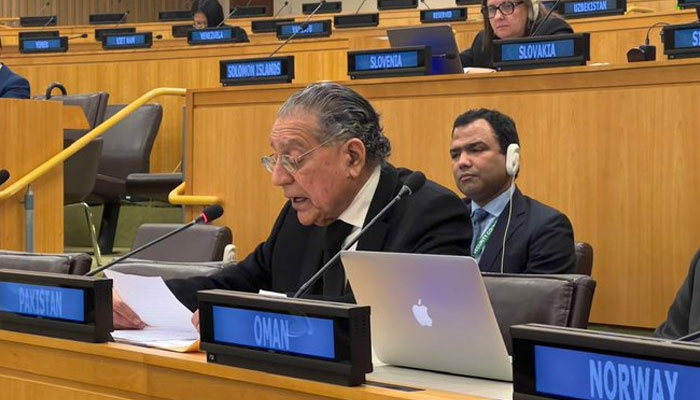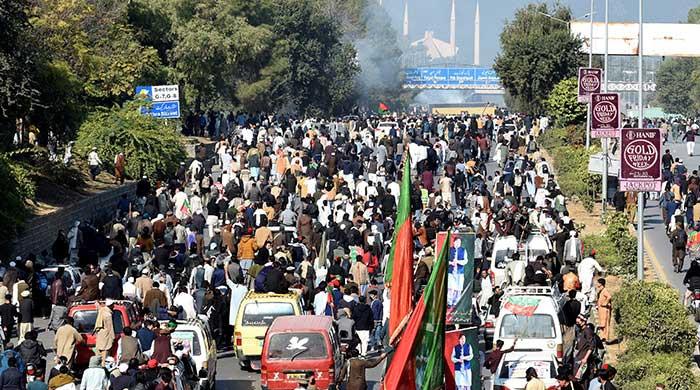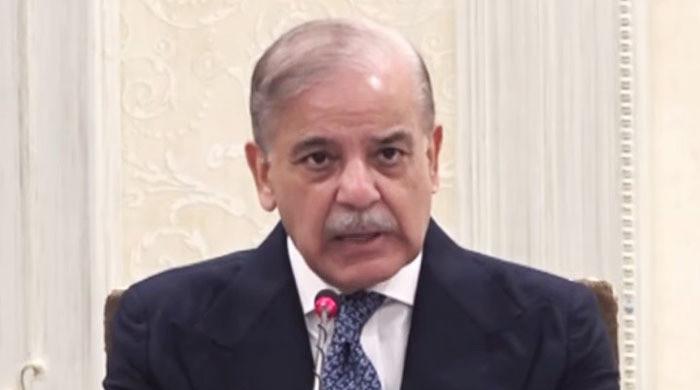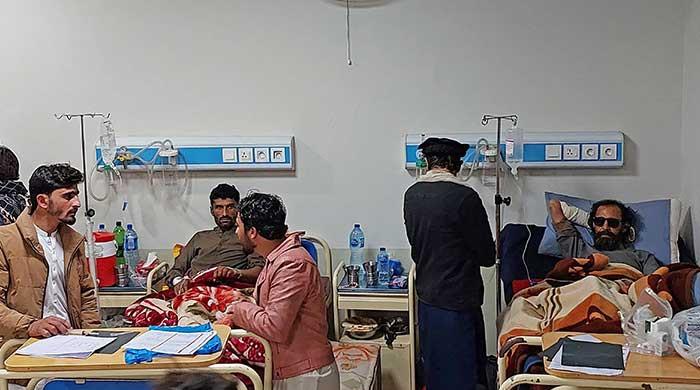India's arms acquisitions threaten regional security, Pakistan tells UN body
"It [New Delhi] is now world’s largest arms importer, and is being supplied by its 'strategic partners' with nuclear and conventional weapons."
April 02, 2024

- Munir Akram laments induction of destabilising weapons.
- Envoy warns of catastrophe in absence of steps by int'l community.
- He stresses limitations on nuclear and conventional capabilities.
Lamenting India's weapons acquisitions and hostile military posture, Pakistan has warned the United Nations (UN) Disarmament Commission that New Delhi's policies threaten regional peace as they have caused South Asia's security environment to be "volatile and explosive".
"The security environment in South Asia has deteriorated sharply in recent years, as the region’s largest state has embarked on a programme of massive armament," Pakistan's permanent representative to the UN Munir Akram said during a session of the intergovernmental organisation's subsidiary body.
Stressing that India has adopted war-fighting doctrines such as the "Cold Start" which envisages a surprise attack on Pakistan, and a "limited war under the nuclear overhang", Ambassador Akram said: "It [New Delhi] is now the world’s largest arms importer, and is being supplied by its 'strategic partners' with nuclear, missiles, conventional and other destabilising weapons."
His remarks come after Pakistan's Usman Jadoon was elected Chairman of the Disarmament Commission's 2024 session. The Commission, a subsidiary of the UN General Assembly, began its three-week session on Monday to deliberate on disarmament issues
On the issue of the Indian Illegally Occupied Jammu and Kashmir (IIOJK), the envoy said that the decades-long dispute wherein not only the rights Kashmiris are being brutally suppressed and have but has caused the two armies deployed in close proximity coupled with induction of major destabilising weapons has severely deteriorated the regional security situation.
The situation has further been exacerbated, he added, by the induction of major destabilising weapons and war-fighting doctrines, India's sponsorship of terrorism against Pakistan and the absence of dialogue and international action.
"Unless determined steps are taken by the international community to address this situation, it could emerge as the proximate cause of a regional and global catastrophe," the ambassador said.
Pakistan, he pointed out, has sought to achieve the objective of undiminished security at the lowest possible level of armaments, noting it had proposed the creation of a nuclear-weapon-free zone in South Asia.
"Unfortunately, 20 after the adoption of this commitment, one South Asian State unilaterally conducted nuclear weapons explosions," the Pakistani envoy said, adding that Islamabad was obliged to follow suit.
"In the immediate aftermath of South Asia’s nuclearisation, Pakistan offered to conclude a 'Strategic Restraint Regime,' envisaging reciprocal limitations on nuclear, missile and conventional capabilities, together with efforts to resolve outstanding disputes, especially the festering dispute over IIOJK.
"This proposal remains on the table [...] In the dismal and dangerous global security environment, the Disarmament Commission, with its universal membership and democratic structure, can make a singular contribution to promoting global and regional security," he concluded.












